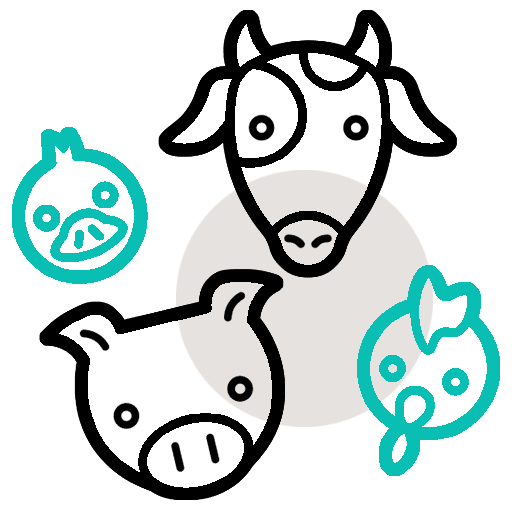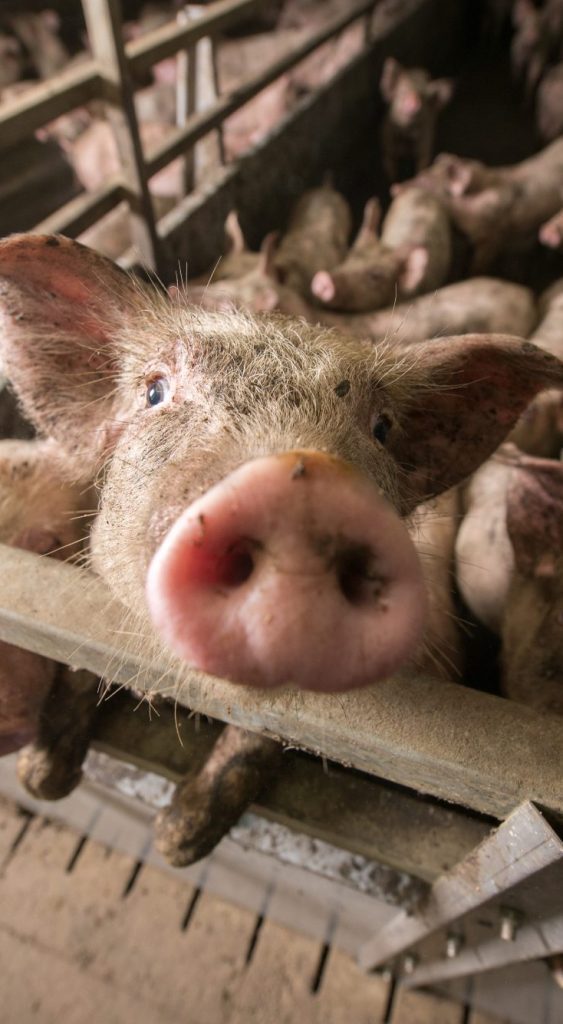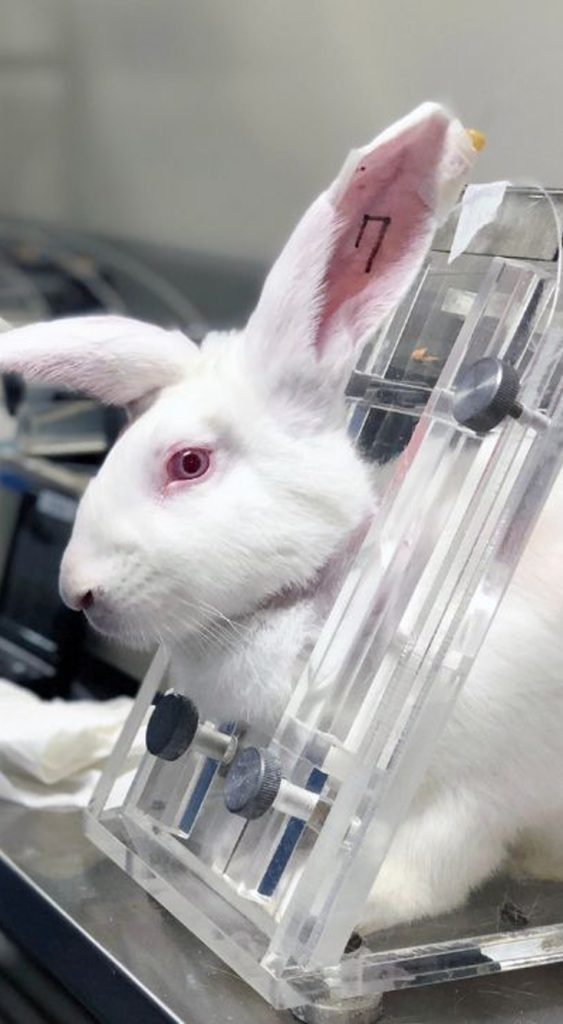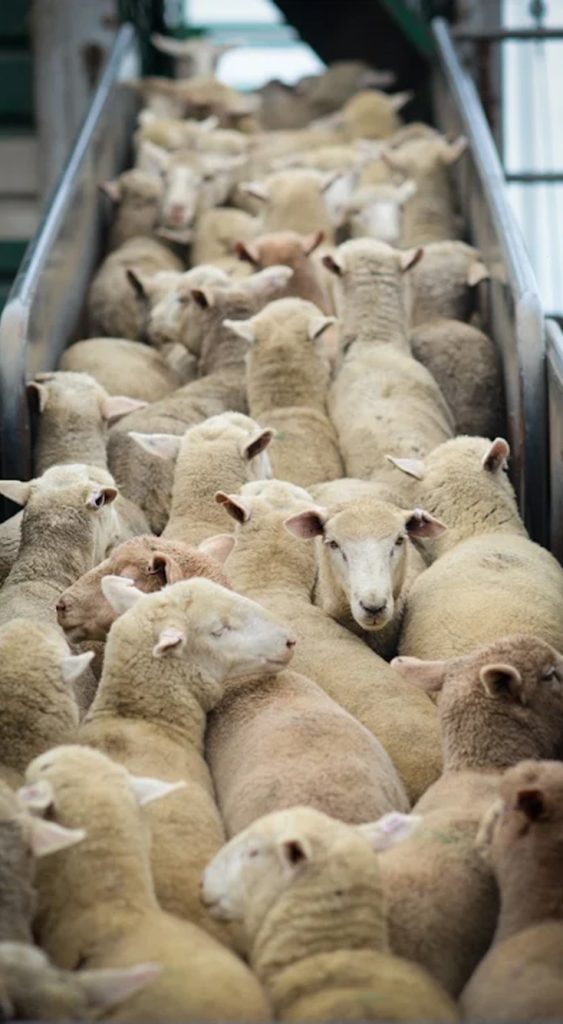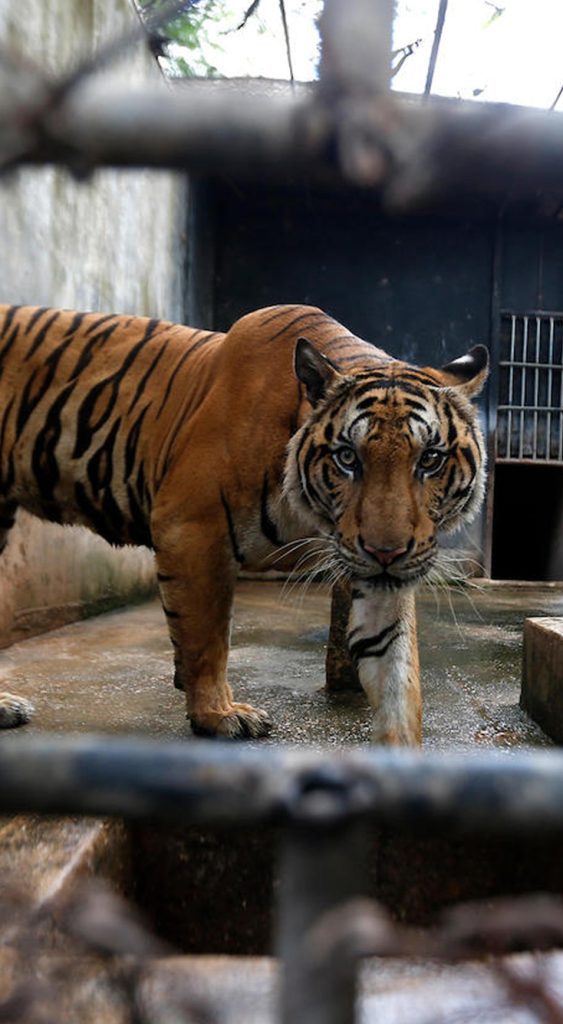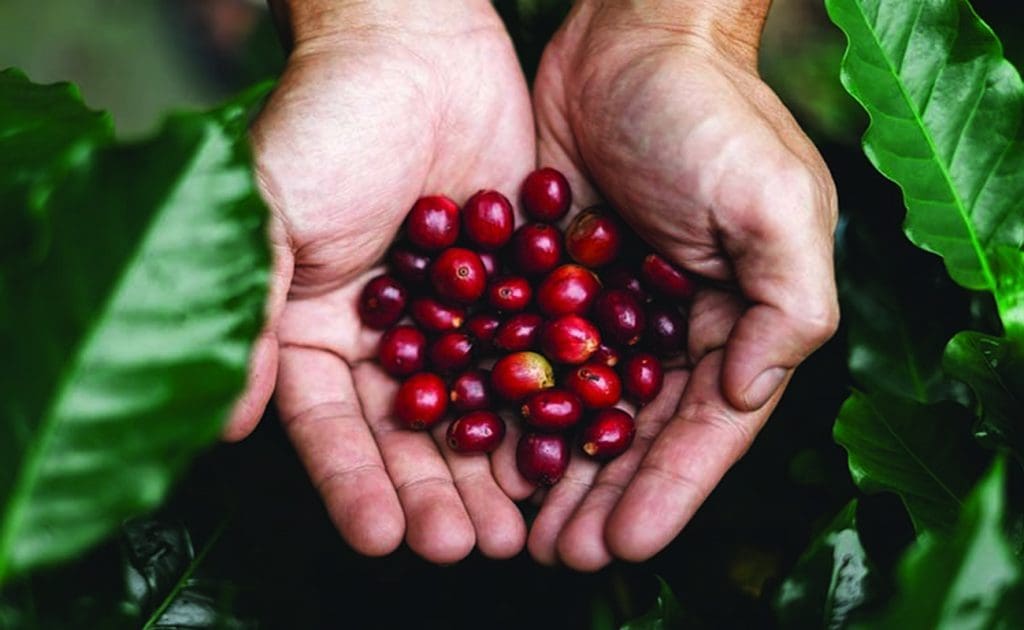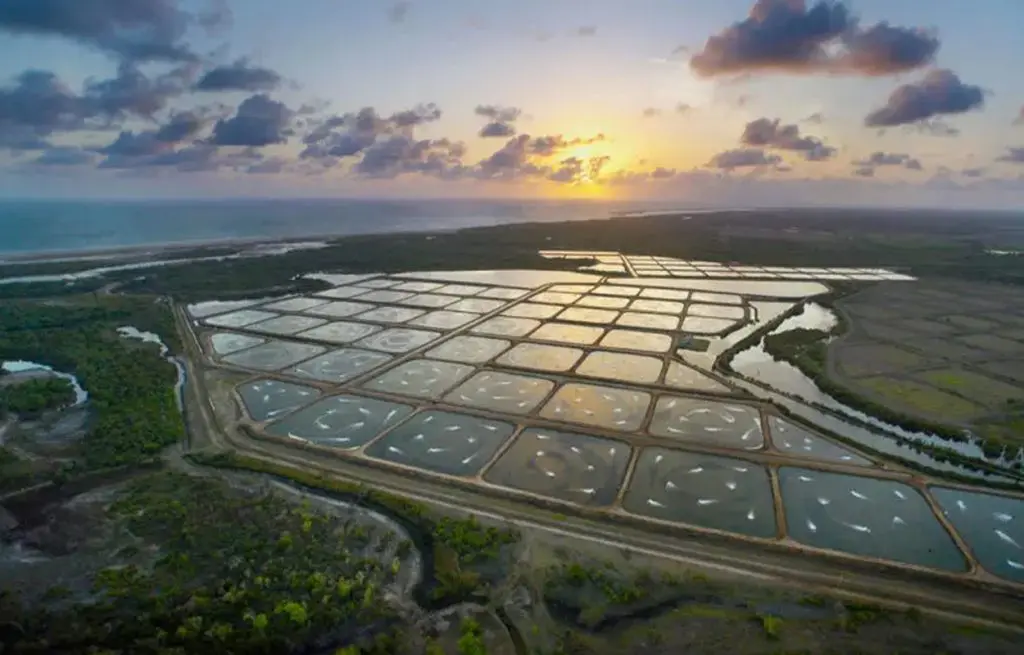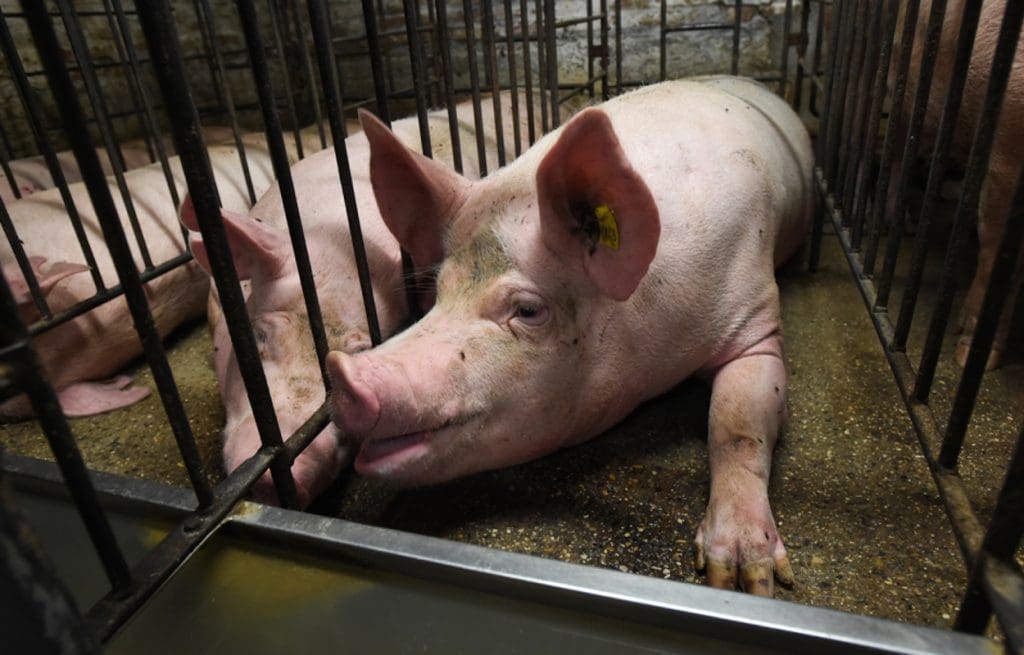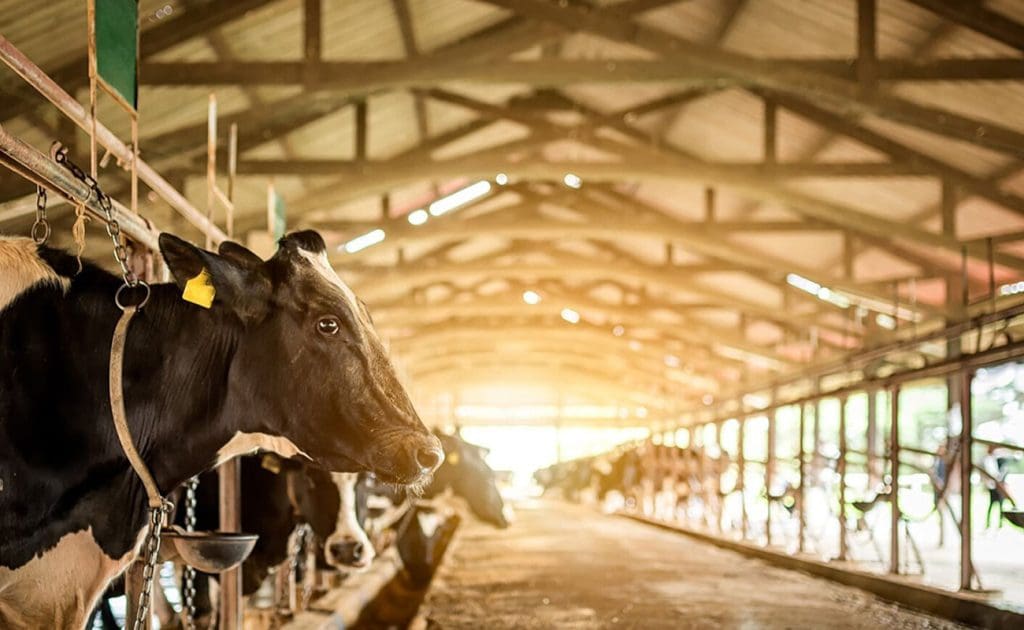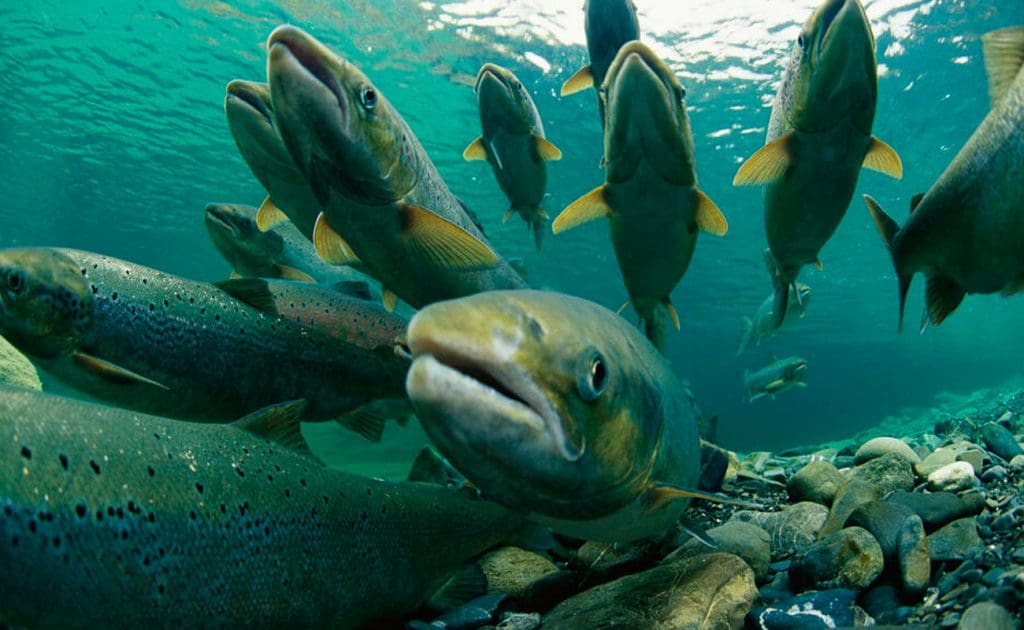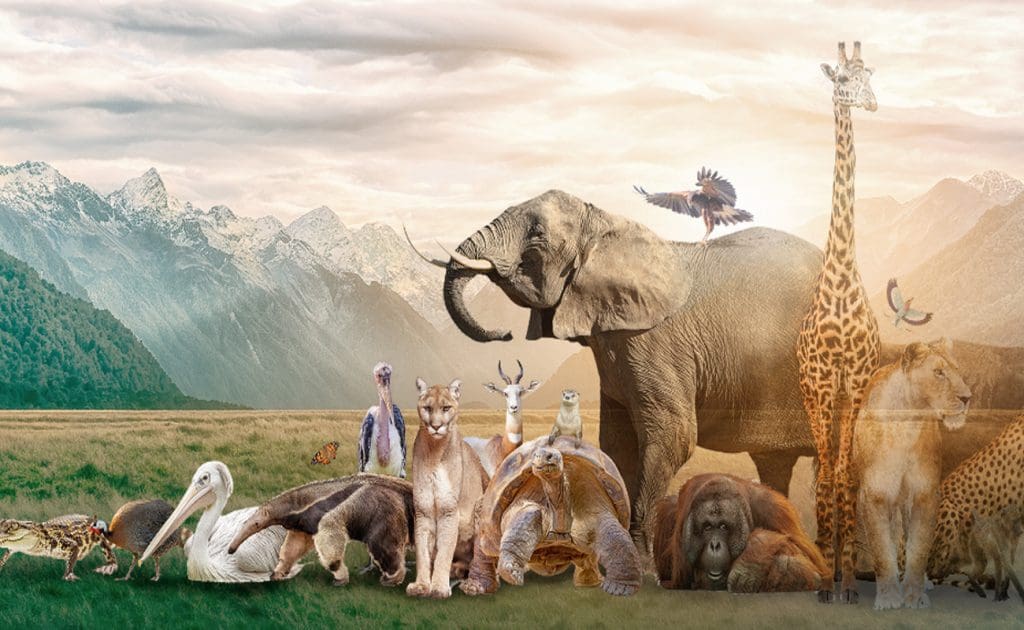
우리가하는 일
우리가 할 수있는 가장 좋은 일은 우리가 먹는 방식을 바꾸는 것입니다. 식물성식이 요법은 지구와 우리가 공존하는 다양한 종 모두에게 더 자비로운 선택입니다.
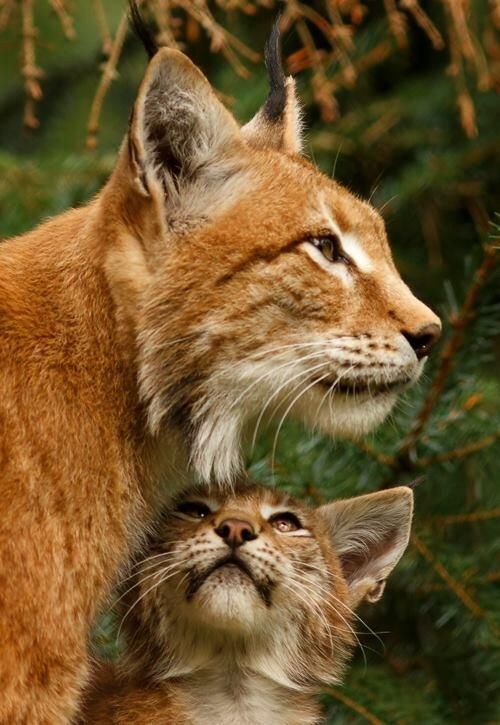
지구를 구하십시오
동물 농업은 생물 다양성 손실과 종 멸종의 주요 원인이며, 우리 생태계에 심각한 위협이됩니다.
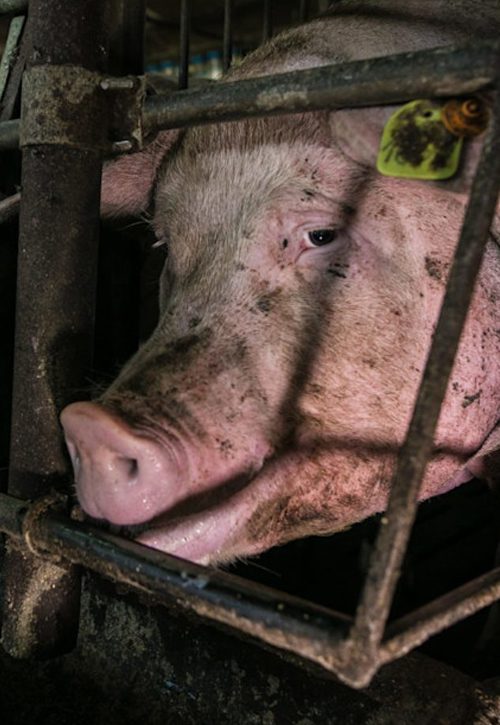
그들의 고통을 끝내십시오
공장 농업은 육류 및 동물 유래 제품에 대한 소비자 수요에 크게 의존합니다. 모든 식물 기반 식사는 잔인한 시스템에서 동물을 해방시키는 데 기여합니다.

식물에서 번성합니다
식물성 식품은 맛이 좋을뿐만 아니라 에너지를 향상시키고 전반적인 복지를 촉진하는 필수 비타민과 미네랄이 풍부합니다. 식물이 풍부한식이 요법을 수용하는 것은 만성 질환을 예방하고 장기 건강을 지원하기위한 효과적인 전략입니다.
동물이 피해를 입거나 목소리가 들리지 않는 곳마다, 우리는 잔인 함과 챔피언 동정심에 직면하기 시작합니다. 우리는 지칠 줄 모르고 불의를 드러내고, 지속적인 변화를 추진하며, 그들의 복지가 위협받을 때마다 동물을 보호합니다.
위기
우리 식품 산업의 진실
육류 산업
고기를 위해 살해 된 동물
고기를 위해 살해 된 동물들은 태어난 날에 고통을 겪기 시작합니다. 육류 산업은 가장 심각하고 비인간적 인 치료 관행과 관련이 있습니다.

소
고통으로 태어난 소는 학살이 시작되기 전에 경적 제거와 거세와 같은 두려움, 고립 및 잔인한 절차를 견뎌냅니다.
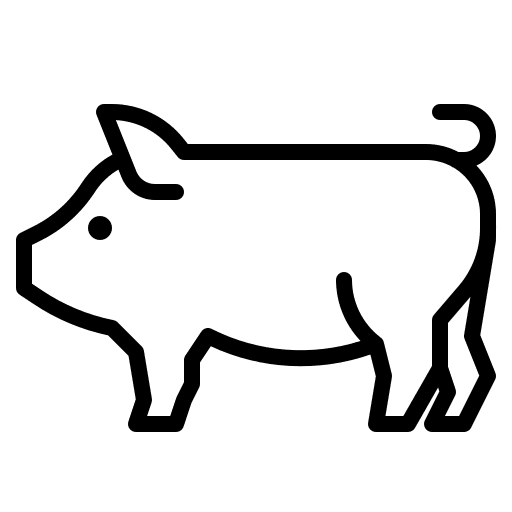
돼지
개보다 지능적인 돼지는 비좁고 창문이없는 농장에서 목숨을 씁니다. 암컷 돼지는 가장 고통을 겪고 있습니다. 반복적으로 함침되어 상자에 갇혀 너무 작아서 어린 시절을 위로하기도 할 수 없습니다.

닭
닭은 최악의 공장 농업을 견뎌냅니다. 수천 명의 사람들에 의해 더러운 창고에 가득 찬 그들은 몸이 대처할 수없는 빨리 자라기 위해 자랐습니다. 대부분은 불과 6 주 만에 사망합니다.
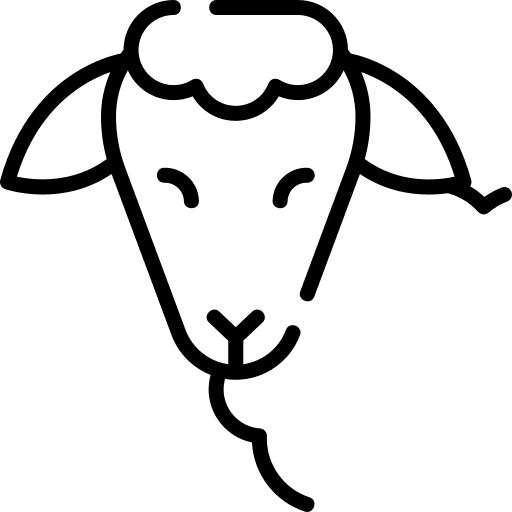
어린 양
어린 양은 고통스러운 절단을 견뎌내고 출생 직후에 어머니에게서 찢어졌습니다. 그들의 고통은 너무 일찍 시작되어 너무 빨리 끝납니다.

토끼
토끼는 법적 보호없이 잔인한 살인을 겪고 있습니다. 그들의 조용한 고통은 종종 보이지 않습니다.

칠면조
매년 수백만 명의 칠면조가 잔인한 죽음에 직면하고 있으며, 많은 사람들이 수송 중에 스트레스로 사망하거나 도축장에서 살아있는 삶을 살아갑니다. 그들의 지능과 강한 가족 유대에도 불구하고, 그들은 조용하고 많은 수의 고통을 겪고 있습니다.
잔인 함을 넘어서
육류 산업은 지구와 우리의 건강에 해를 끼칩니다.
육류의 환경 영향
음식을 위해 동물을 키우는 것은 엄청난 양의 토지, 물, 에너지를 소비하며 큰 환경 피해를 유발합니다. 유엔의 FAO는 가축 농업이 전 세계 온실 가스 배출량의 거의 15%를 차지하기 때문에 동물성 제품 소비 감소가 기후 변화와 싸우는 데 필수적이라고 말했다. 공장 농장은 또한 미국의 35,000 마일 이상의 수로를 오염시키면서 사료, 청소 및 음주를 위해 방대한 수자원을 낭비합니다.
건강 위험
동물성 제품을 섭취하면 심각한 건강 문제의 위험이 증가합니다. WHO는 가공 고기를 발암 물질로 분류하여 결장 및 직장암의 위험을 18%증가시킵니다. 동물성 제품은 심장병, 뇌졸중, 당뇨병 및 암과 관련된 포화 지방이 높습니다. 미국 연구에서 사망 원인에 따르면 채식주의자는 더 오래 산다. 한 연구에 따르면 고기를 먹는 사람에 비해 6 년 동안 사망 할 가능성이 12% 줄었습니다.
유제품 산업
유제품의 어두운 비밀
우유 한 잔 뒤에는 고통의주기가 있습니다. 어머니 소는 반복적으로 함침되어 송아지를 빼앗아 우유를 인간을 위해 수확 할 수 있습니다.
부러진 가족
유제품 농장에서 어머니는 송아지가 사라질 때 송아지를 외칩니다. 따라서 우유는 우리를 위해 병에 담을 수 있습니다.
혼자서
어머니에게서 찢어진 송아지는 초기 생명을 차가운 고립으로 보냅니다. 그들의 어머니는 비좁은 포장 마차에 묶여 있으며 수년간의 조용한 고통을 겪고 있습니다.
고통스러운 절단
브랜딩의 시어지는 고통에서 탈취 및 꼬리 도킹의 생생한 고통에 이르기까지,이 폭력적인 절차는 마취없이 이루어지며, 젖소가 상처를 입고, 겁을 먹고, 부러 뜨립니다.
잔인하게 죽었다
젖소는 젖소가 잔인한 끝을 향해 자란 소를 자란, 더 이상 우유를 생산하지 않으면 너무 어리게 도축했습니다. 많은 사람들이 고통스러운 여정을 견뎌내고 도살 중에 의식을 유지하며, 그들의 고통은 산업 벽 뒤에 숨겨져 있습니다.
잔인 함을 넘어서
잔인한 유제품은 환경과 우리의 건강에 해를 끼칩니다.
유제품의 환경 비용
유제품 농업은 대기에 해를 끼치는 많은 양의 메탄, 아산화 질소 및 이산화탄소를 방출합니다. 또한 자연 서식지를 농지로 변환하여 삼림 벌채를 유발하고 부적절한 분뇨 및 비료 취급을 통해 현지 수원을 오염시킵니다.
건강 위험
유제품 소비는 우유의 높은 인슐린 유사 성장 인자 수준으로 인해 유방암 및 전립선 암을 포함한 심각한 건강 문제의 위험이 높아집니다. 칼슘은 강한 뼈에 필수적이지만 유제품은 유일하거나 최고의 원천이 아닙니다. 잎이 많은 녹색과 강화 된 식물성 음료는 잔인하고 건강한 대안을 제공합니다.
계란 산업
갇힌 암탉의 삶
암탉은 가족을 구하고 돌보는 것을 즐기는 사회적 동물이지만, 작은 새장에 비좁은 2 년을 보내거나 날개를 펴거나 자연스럽게 행동 할 수 없습니다.
34 시간의 고통 : 계란의 실제 비용
수컷 병아리 컬
계란을 낳거나 고기 닭처럼 자랄 수없는 수컷 병아리는 계란 산업에서 무가치 한 것으로 간주됩니다. 부화 직후, 그들은 암컷과 분리되어 잔인하게 살해됩니다.
강렬한 감금
미국에서는 암탉의 거의 75%가 작은 와이어 케이지로 가득 차 있으며 각각 프린터 용지보다 공간이 적습니다. 발을 다치게하는 단단한 와이어에 서서 많은 암탉 이이 새장에서 고통을 겪고 죽었고 때로는 살아있는 사람들 사이에서 부패하기 위해 떠났습니다.
잔인한 절단
계란 산업의 암탉은 극심한 감금으로 심각한 스트레스를 겪어 자기 운동과 식인 풍습과 같은 유해한 행동으로 이어집니다. 결과적으로 노동자들은 진통제없이 민감한 부리를 차단합니다.
잔인 함을 넘어서
계란 산업은 우리의 건강과 환경 모두에 해를 끼칩니다.
계란과 환경
계란 생산은 환경에 크게 해를 끼칩니다. 소비 된 각 알은 암모니아 및 이산화탄소를 포함하여 반 파운드의 온실 가스를 생성합니다. 또한, 계란 농업에 사용되는 다량의 살충제는 지역 수로와 공기를 오염시켜 광범위한 환경 손상에 기여합니다.
건강 위험
계란은 정상으로 보일 때에도 유해한 살모넬라 박테리아를 가지고 다닐 수 있으며 설사, 열, 복통, 두통, 메스꺼움 및 구토와 같은 질병 증상을 유발합니다. 공장에서 농장 된 알은 종종 열악한 상태에서 보관 된 암탉에서 나오며 건강 위험을 초래하는 항생제 및 호르몬이 포함될 수 있습니다. 또한, 계란의 높은 콜레스테롤 함량은 일부 개인의 심장 및 혈관 문제에 기여할 수 있습니다.
어업 산업
치명적인 어류 산업
물고기는 고통을 느끼고 보호받을 자격이 있지만 농업이나 낚시에 대한 법적 권리는 없습니다. 그들의 사회적 본질과 고통을 느낄 수있는 능력에도 불구하고, 그들은 단순한 상품으로 취급됩니다.
공장 생선 농장
오늘날 소비되는 대부분의 물고기는 붐비는 내륙 또는 해양 기반의 아쿠아 파프에서 자라며, 높은 수준의 암모니아와 질산염이있는 오염 된 물에서 평생을 제한했습니다. 이러한 가혹한 상태는 아가미, 기관 및 혈액을 공격하는 빈번한 기생충 감염과 광범위한 박테리아 감염으로 이어집니다.
산업 낚시
상업적 낚시는 엄청난 동물의 고통을 유발하여 매년 전 세계적으로 거의 1 조 물고기를 죽입니다. 거대한 선박은 수십만 개의 미끼 고리로 50 마일까지 긴 줄과 300 피트에서 7 마일까지 뻗어있을 수 있습니다. 물고기는이 그물로 맹목적으로 수영을하며 종종 질식하거나 출혈이 죽습니다.
잔인한 학살
법적 보호없이 물고기는 미국 도축장에서 끔찍한 죽음을 겪습니다. 물에서 벗어난 그들은 아가미가 무너지면서 무력하게 헐떡 거리며 천천히 고통에 질식합니다. 더 큰 물고기 (Tuna, Swordfish)는 잔인하게 클럽을 띠고 종종 부상을 입었지만 여전히 의식이 있으며 죽기 전에 반복적 인 파업을 견뎌야합니다. 이 끊임없는 잔인 함은 표면 아래에 숨겨져 있습니다.
잔인 함을 넘어서
어업 산업은 우리의 지구를 황폐화시키고 우리의 건강에 해를 끼칩니다.
낚시와 환경
산업 낚시와 어류 농업은 환경에 해를 끼칩니다. 공장 어류 농장은 독성 수준의 암모니아, 질산염 및 기생충으로 물을 오염시켜 광범위한 손상을 일으킨다. 대형 상업 어선은 바다 바닥을 긁어 서식지를 파괴하고 바이 캐치로 캐치의 최대 40%를 버리고 생태 학적 영향을 악화시킵니다.
건강 위험
생선과 해산물을 먹으면 건강에 위험이 있습니다. 참치, 황새치, 상어 및 고등어와 같은 많은 종에는 높은 수은 수준이 포함되어있어 태아와 어린이의 신경계에 해를 끼칠 수 있습니다. 물고기는 또한 암 및 생식 문제와 관련된 다이옥신 및 PCB와 같은 독성 화학 물질로 오염 될 수 있습니다. 또한, 연구에 따르면 어류 소비자는 매년 수천 개의 작은 플라스틱 입자를 섭취 할 수있어 시간이 지남에 따라 염증과 근육 손상을 일으킬 수 있습니다.
200 마리의 동물.
그것은 비건 채식을 통해 매년 한 사람이 매년 여유가 될 수있는 삶의 수입니다.
동시에, 가축을 먹이는 데 사용 된 곡물이 대신 사람들에게 먹이를주는 데 사용된다면, 매년 최대 35 억 명의 사람들에게 음식을 제공 할 수 있습니다.
글로벌 굶주림을 해결하는 데 중요한 단계.


변화를 만들 준비가 되셨나요?
당신은 사람, 동물, 그리고 지구에 관심이 있어서 여기에 있습니다.

왜 식물성 식단을 선택해야 할까요?
더 나은 건강부터 더 나은 지구까지, 식물성 식단으로 전환하는 강력한 이유를 알아보세요. 당신의 음식 선택이 얼마나 중요한지 알아보세요.

식물성 식단을 시작하기 위한 가이드
자신감과 편안함을 가지고 식물성 식단으로의 여정을 시작하기 위한 간단한 단계, 스마트한 팁, 유용한 리소스를 알아보세요.
인간을 위해
공장 농업은 인간에게 대규모 건강 위험이며 부주의하고 더러운 활동으로 인해 발생합니다. 가장 심각한 문제 중 하나는 가축의 항생제 과용으로,이 공장에서는 과밀하고 스트레스가 많은 상태에서 질병을 막기 위해이 공장에서 널리 퍼져 있습니다. 이 강렬한 사용은 항생제에 내성이있는 박테리아의 형성으로 이어지고, 감염된 제품과의 직접적인 접촉, 감염된 제품의 소비 또는 물 및 토양과 같은 환경 공급원으로부터 인간에게 전달됩니다. 이“슈퍼 버그”의 확산은 과거의 약물이나 치료할 수없는 사건에 쉽게 치료할 수있는 감염을 만들 수 있기 때문에 세계 건강에 큰 위협입니다. 또한, 공장 농장은 또한 동물로부터 인간으로 획득하고 전염 될 수있는 유체의 생식 병원체의 출현과 확산을위한 완벽한 환경을 만듭니다. 살모넬라, 대장균 및 캄 필로 박터와 같은 세균은 더러운 공장 농장의 주민으로, 스프레드는 고기, 계란 및 유제품 제품에 존재할 가능성이 높아지고 식품 매개 질병과 발병으로 이어집니다. 미생물 위험 외에도 공장 농장 동물 제품은 종종 포화 지방과 콜레스테롤이 풍부하여 비만, 심혈관 질환 및 2 형 당뇨병과 같은 몇 가지 만성 질환을 유발합니다. 게다가, 가축에서 성장 호르몬의 과도한 사용은 가능한 호르몬 불균형과 이러한 제품을 소비하는 인간의 장기 건강 영향에 대한 우려를 제기했습니다. 공장 농업으로 인한 환경 오염은 또한 동물 폐기물이 위험한 질산염과 박테리아로 식수를 침투하여 위장 문제 및 기타 건강 문제를 초래할 수 있기 때문에 인근 지역 사회의 건강에 간접적으로 영향을 미칩니다. 그 전에, 이러한 위험은 공중 보건을 방어하기 위해 식품이 생산되는 방식에 대한 즉각적인 변화의 필요성과 더 안전하고 지속 가능한 농업 방법의 격려를 강조합니다.
오늘날 사회에서는 식물성 식단을 선택하는 사람들이 크게 증가하고 있습니다. ...
우리의 일상적인 소비 습관이 환경과 동물 복지에 미치는 부정적인 영향에 대한 인식이 높아짐에 따라 윤리적인...
식단을 선택할 때는 다양한 선택지가 있습니다. 하지만 최근 몇 년 동안...
해산물은 오랫동안 많은 문화권에서 주식으로 사용되어 왔으며, 해안 지역 사회에 생계와 경제적 안정의 원천을 제공해 왔습니다.
오늘날 세계에서 지속가능성은 우리의 즉각적인 관심을 요구하는 시급한 문제로 자리 잡았습니다. 세계 인구가 계속 증가하고...
체중 관리 분야에서는 빠른 체중 감량을 약속하는 새로운 다이어트, 보충제, 운동 요법이 끊임없이 쏟아져 나오고 있습니다.
동물의 경우
공장 농업은 동물에 대한 상상할 수없는 잔인 함을 기반으로하며,이 동물들을 고통, 두려움, 고통을 느낄 수있는 지각있는 존재보다는 단순한 상품으로 보는 것입니다. 이 시스템의 동물은 움직일 공간이 거의없는 제한된 케이지에 보관되어 있으며, 방목, 둥지 또는 사교와 같은 자연스러운 행동을 수행 할 수 있습니다. 제한된 조건은 심각한 신체적, 심리적 고통을 초래하여 침략 또는 자해와 같은 비정상적인 행동의 발달로 부상을 입히고 만성 스트레스의 장기간을 유발합니다. 어머니 동물에 대한 비자발적 생식 관리의주기는 무한하며, 자손은 출생 후 몇 시간 안에 어머니로부터 제거되어 어머니와 젊은이 모두에게 스트레스가 높아집니다. 송아지는 종종 사회적 상호 작용과 어머니와의 유대에서 멀어지게됩니다. 꼬리 도킹, 토론, 거세 및 탈구와 같은 고통스러운 절차는 마취 또는 통증 완화없이 수행되어 불필요한 고통을 유발합니다. 닭의 더 빠른 성장률 또는 유제품 젖소의 우유 수익률이 빠른 최대 생산성에 대한 선택은 유방염, 장기 실패, 뼈 기형 등 매우 고통스러운 심각한 건강 상태를 초래했습니다. 더럽고 붐비는 환경, 적절한 수의 치료없이 질병에 걸리기 쉬운 환경. 햇빛, 신선한 공기 및 공간이 거부되면 학살 당일까지 공장과 같은 조건으로 고통받습니다. 이 지속적인 잔인 함은 윤리적 문제를 제기하지만 동물을 친절하고 존엄하게 대할 수있는 도덕적 의무에서 산업 농업 운영이 얼마나 멀리 제거되는지를 강조합니다.
우리의 일상적인 소비 습관이 환경과 동물 복지에 미치는 부정적인 영향에 대한 인식이 높아짐에 따라 윤리적인...
식단을 선택할 때는 다양한 선택지가 있습니다. 하지만 최근 몇 년 동안...
해산물은 오랫동안 많은 문화권에서 주식으로 사용되어 왔으며, 해안 지역 사회에 생계와 경제적 안정의 원천을 제공해 왔습니다.
최근 몇 년 동안 "버니 허거(bunny hugger)"라는 용어는 동물 권리를 옹호하는 사람들을 조롱하고 폄하하는 데 사용되었습니다.
육류 및 유제품 산업은 오랫동안 논란의 여지가 있는 주제였으며, 환경과 동물에 미치는 영향에 대한 논쟁이 촉발되었습니다.
바다는 지구 표면의 70% 이상을 덮고 있으며, 다양한 수생 생물의 서식지입니다.
지구를 위해
공장 농업은 지구와 환경에 대한 기념비적 인 위험을 창출하여 생태와 기후 변화의 저하의 주요 플레이어가되었습니다. 집중적 인 농업의 가장 영향력있는 환경 적 결과는 온실 가스 배출입니다. 가축 농업, 특히 소에서 나오는 가축 농업은 대기 중량의 메탄을 생산합니다. 이산화탄소와 비교하여 대기의 열을 유지하는 강한 온실 가스입니다. 이것이 지구 온난화에 기여하고 기후 변화에 가속을 제공하는 또 다른 주요 요인입니다. 전 세계적으로, 동물 방목 또는 대두 및 동물 사료를위한 옥수수와 같은 단일 배양 작물 재배를위한 산림지의 대규모 허가는 삼림 벌채를 유발하는 공장 농업의 또 다른 강력한 측면을 제시합니다. 산림의 파괴는 행성의 이산화탄소를 흡수하는 능력을 줄이는 것 외에도 생태계를 방해하고 수많은 종에 대한 서식지를 파괴함으로써 생물 다양성을 위협합니다. 또한 공장 농업은 가축, 사료 작물 재배 및 폐기물 처리에 많은 물이 필요하기 때문에 중요한 수자원을 전환합니다. 동물 폐기물의 무차별 덤핑은 질산염, 인산염 및 생존 유기체와 같은 유해한 물질로 강, 호수 및 지하수를 오염시켜 해양 생물이 존재할 수없는 바다에서 수질 오염과 죽은 구역의 산란을 유발합니다. 또 다른 문제는 사료 생산을위한 토지의 과도한 탐사로 인한 영양 고갈, 침식 및 사막화로 인한 토양 분해입니다. 또한 살충제와 비료를 많이 사용하면 수분 조절제, 야생 동물 및 인간 공동체에 해를 끼치는 주변 생태계를 파괴합니다. 공장 농업은 지구의 건강을 손상시킬뿐만 아니라 천연 자원에 대한 스트레스를 증가시켜 환경 지속 가능성을 방해합니다. 이러한 문제를 해결하기 위해보다 지속 가능한 식품 시스템으로의 전환이 필수적입니다. 인간 및 동물 복지 및 환경 자체에 대한 윤리적 고려 사항이 포함됩니다.
우리의 일상적인 소비 습관이 환경과 동물 복지에 미치는 부정적인 영향에 대한 인식이 높아짐에 따라 윤리적인...
식단을 선택할 때는 다양한 선택지가 있습니다. 하지만 최근 몇 년 동안...
해산물은 오랫동안 많은 문화권에서 주식으로 사용되어 왔으며, 해안 지역 사회에 생계와 경제적 안정의 원천을 제공해 왔습니다.
가축 농업은 수천 년 동안 인간 문명의 핵심 부분이었으며, 중요한 식량 공급원을 제공해 왔습니다.
오늘날 세계에서 지속가능성은 우리의 즉각적인 관심을 요구하는 시급한 문제로 자리 잡았습니다. 세계 인구가 계속 증가하고...
우리 사회는 전반적인 건강을 유지하기 위해 균형 잡히고 다양한 식단을 섭취하라는 권고를 오랫동안 받아왔습니다.
- 연합하여, 동물을 고용하게 만든 공장 농업이 우리의 얼굴에 미소를 지으며 이야기 할 수있는 역사가되는 미래를 꿈꾸겠습니다. 개인과 지구의 건강은 우리 모두의 주요 우선 순위 중 하나입니다. 농업은 세계에서 식사를 생산하는 주요 방법 중 하나입니다. 그러나 시스템은 나쁜 결과를 초래합니다. 예를 들어, 통증 동물 경험은 견딜 수 없습니다. 그들은 단단하고 혼잡 한 공간에 살고 있습니다. 즉, 자연스러운 행동을 표현할 수없고 여전히 더 나빠질 수 있습니다. 동물의 농업은 동물이 고통받는 이유 일뿐 만 아니라 환경과 건강이 레이더에 나타납니다. 소에 항생제의 과도한 사용은 항생제 내성 박테리아의 상승에 기여하여 인간 건강에 위협이됩니다. 젖소와 같은 동물은 또한 유해한 화학 물질의 방출로 인해 물의 오염원입니다. 반면, 삼림 벌채 활동과 온실 가스의 대규모 배출을 통한 기후 변화를 통한 동물 농업의 안내는 지배적 인 문제입니다.
- 우리의 믿음은 여기에있는 모든 생물이 존중과 존엄성으로 영광을 누리고 있으며, 첫 번째 빛은 사람들이가는 곳으로 이어집니다. 우리는 정부, 교육 프로그램 및 전략적 파트너십을 통해 공장 농업에 대한 진실을 알리는 원인을 가져 왔습니다. 공장 농업에 대한 진실은 동물의 매우 고통스럽고 잔인한 치료와 같은 권리가없고 사형을 고문합니다. 우리의 주요 초점은 사람들이 현명한 결정을 내리고 실제로 실제 변화를 가져올 수 있도록 교육을 제공하는 것입니다. Humane Foundation 공장 농업, 지속 가능성, 동물 복지 및 인간 건강으로 인해 발생하는 많은 문제에 대한 해결책을 제시하기 위해 노력하는 비영리 기관으로, 개인이 자신의 행동을 도덕적 가치에 맞출 수있게합니다. 식물 기반 대체물을 생산 및 홍보하고, 효과적인 동물 복지 정책을 개발하고, 유사한 조직과 함께 네트워크를 설립함으로써, 우리는 자비 롭고 지속 가능한 환경을 구축하기 위해 노력하고 있습니다.
- Humane Foundation 공동 농장 동물 학대의 0%가있는 세계의 공통 목표에 의해 연결되어 있습니다. 걱정스러운 소비자, 동물 애호가, 연구원 또는 정책 입안자 인 변화의 움직임에 대한 우리의 손님이 되십시오. 팀과 마찬가지로, 우리는 동물이 친절하게 취급되는 세상, 우리의 건강이 우선 순위이며 환경이 미래 세대를 위해 손대지 않은 곳을 만들 수 있습니다.
- 이 웹 사이트는 공장 원산지 농장, 다른 옵션을 통한 인도 음식에 대한 진실한 진실에 대한 지식과 최신 캠페인에 대해들을 수있는 기회입니다. 식물 기반 식사 공유를 포함하여 다양한 방법에 참여할 수있는 기회를 제공합니다. 또한 행동 유도 문안이 발언하고 좋은 정책을 홍보하고 지속 가능성의 중요성에 대해 지역 이웃을 교육하는 데 관심이 있음을 보여줍니다. 소규모 행위 구축 전기 성은 더 많은 다른 사람들이 세상을 지속 가능한 생활 분위기와 더 많은 동정심의 단계로 이끌어 줄 과정의 일부가되도록 격려합니다.
- 세상을 더 잘 계산할 수 있도록 동정심과 운전에 대한 헌신입니다. 통계에 따르면 우리는 우리가 꿈의 세계를 창조 할 힘이있는 단계에 있으며, 동물이 공감으로 대우받는 세상, 인간 건강은 최상의 모양이며 지구는 다시 생생합니다. 다가오는 수십 년의 동정심, 공정성 및 선의를 준비하십시오.
해결책
해결책은 단 하나뿐입니다...
지구상의 생명을 착취하는 것을 멈추세요.
지구가 자연적 균형을 되찾고 공장식 농장으로 인한 환경 피해로부터 회복하려면, 우리는 땅을 자연으로 돌려주고 동물과 생태계에 대한 착취를 종식시켜야 합니다.
우리의 출처
[1] https://www.weforum.org/stories/2021/06/물발자국-식품-지속가능성/
[2] https://wwf.panda.org/discover/knowledge_hub/where_we_work/amazon/amazon_threats/unsustainable_cattle_ranching/
[3] https://veganlandmovement.com/land-use/
[4] https://www.fao.org/4/a0701e/a0701e00.htm
[5] https://ourworldindata.org/data-insights/매년 수십억 마리의 닭과 오리, 돼지가 고기를 위해 도축됩니다.
[6] https://www.worldanimalprotection.org.uk/latest/blogs/environmental-impacts-factory-farming/
[7] https://www.feedbusinessmea.com/2024/12/03/global-feed-industry-to-utilize-1048m-tonnes-of-grains-in-2024-25-igc/
[8] https://en.wikipedia.org/wiki/Livestock's_Long_Shadow#Report
[9] https://www.who.int/news/item/07-11-2017-stop-using-antibiotics-in-healthy-animals-to-prevent-the-spread-of-antibiotic-resistance
[10] https://en.wikipedia.org/wiki/Fish_slaughter#Numbers
[11] https://www.unep.org/news-and-stories/press-release/our-global-food-system-primary-driver-biodiversity-loss
[12] https://ourworldindata.org/토지-이용-다이어트



